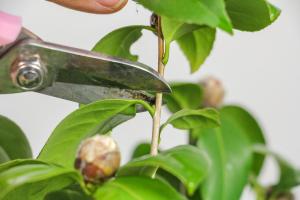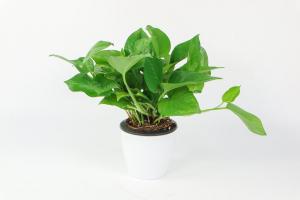How can Water Pollution Affect Plants and Animals?
Water is a vital resource for all living things. Unfortunately, due to human activities, water pollution has become a serious problem in many parts of the world. The toxins and pollutants that enter our water bodies can have a devastating impact on the plants and animals that call them home. In this article, we will explore how water pollution affects plants and animals and the long-term consequences of this pollution on our ecosystem.
Impact of Water Pollution on Plants
Plants are an integral part of the aquatic ecosystem, especially in the form of algae and seaweeds. They are the primary producers and provide a critical source of food for aquatic animals. However, when water pollution occurs, it can severely affect the health of these plants. Pollutants like fertilizers, pesticides, and herbicides can increase the growth of algae, causing algal blooms. These blooms can block sunlight and oxygen from reaching other plants in the water, leading to their death. In extreme cases, a lack of oxygen can create dead zones, where no plant or animal life can survive.
Impact of Water Pollution on Animals
The effects of water pollution on animals can be direct or indirect. Fish and other aquatic creatures are directly affected by toxic substances in the water, which can lead to death. Polluted water can also impact the ability of fish and other animals to breathe, as toxins can decrease oxygen levels in the water. Furthermore, when water pollution affects plant life, it leads to a reduction in the amount of food available for animals. This can cause populations to decline or even die out altogether.
Long-term Consequences of Water Pollution
Water pollution has long-term consequences for the ecosystem. The effects of pollution can last for decades, and some pollutants can even remain in the water indefinitely. The impact on animals and plants can lead to an imbalance in the ecosystem, affecting the food chain and reducing biodiversity. Additionally, water pollution can also impact human health. Polluted water can lead to the spread of diseases, as well as causing skin irritation and respiratory problems.
How to Prevent Water Pollution
Preventing water pollution requires a multi-faceted approach. For example, reducing the use of pesticides and fertilizers can help to prevent algal blooms. Additionally, limiting industrial and agricultural runoff can help to reduce the amount of pollutants that enter our waterways. Properly disposing of waste and recycling can also help to minimize water pollution. By taking these steps, we can help to ensure that our water resources are preserved for future generations.
Conclusion
In conclusion, water pollution can have a significant impact on the health of plants and animals in our waterways. The long-term consequences of this pollution on our ecosystem cannot be overstated. However, by taking steps to reduce pollution and protect our water resources, we can help to ensure that our planet remains healthy for future generations.

 how many times do yo...
how many times do yo... how many planted tre...
how many planted tre... how many pine trees ...
how many pine trees ... how many pecan trees...
how many pecan trees... how many plants comp...
how many plants comp... how many plants can ...
how many plants can ... how many plants and ...
how many plants and ... how many pepper plan...
how many pepper plan...






























